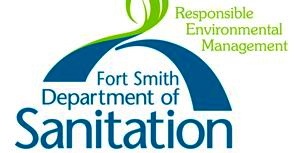Proposal would raise Fort Smith landfill rates for third-party haulers
by November 10, 2015 4:31 pm 526 views

The Fort Smith Regional Sanitary Landfill could see a significant increase in “gate rate” charges if the city’s Board of Directors approve a proposal from Fort Smith Sanitation Director T. Baridi Nkokheli.
At Tuesday’s (Nov. 10) study session from Room 129 of the UAFS Smith-Pendergraft Campus Center, Nkokheli made a case that the city should be charging much higher rates to commercial third-party haulers.
All industrial, residential, and commercial users, regardless of private or public status, now pay the same $34.43 per ton rate that has been in place since 2007. Nkokheli believes the arrangement has Fort Smith taxpayers subsidizing third-party haulers and people throughout the region in spite of the fact it was only city taxpayers, who footed the bill.
Nkokheli compared the landfill’s charges to similarly-sized but privately-owned facilities in Tontitown and Little Rock. Both facilities – property of Waste Management of Arkansas, Inc. – bill at rates of $54 per ton and $51 per ton, respectively. The Little Rock facility has a two-ton minimum, while the Tontitown pricing “does not reflect the internal wholesale charge to its own company,” Nkokheli added.
As a result, he would like to up the charge to $42.40 per ton for residential customers “outside the city of Fort Smith” and charge a $63.87 per ton “retail rate” for commercial use. Fort Smith residents would continue to pay the same $34.43 per ton rate.
The Fort Smith Regional Sanitary Landfill handles approximately 250,000 tons of refuse per year. Multiply that times the going rate, and it pulls in about $8.6 million annually. However, $4.20 of that rate (or $1.05 million) goes toward the city’s Sebastian County Regional Solid Waste Management District fee ($1.70 per ton) and state taxes ($2.50 per ton, though Nkokheli said that a $1 per ton increase is likely to take effect next year).
Approximately $27.17 per ton (close to $6.8 million annually) goes to operations of the facility. Pending capital projects, equipment costs, and the rumored $1 per ton increase on state taxes, the fund is in danger of going into the red, Nkokheli added.
In comments after the study session, Nkokheli acknowledged that as a result of such a steep increase, there could be “some balking” on the part of third-party haulers, but that it was ultimately a “win-win situation” for the sanitation department because operation costs would be reduced significantly if commercial haulers decided to go elsewhere.
Specifically, he foresaw Altes Sanitation being “a big issue.”
“Denny Altes, Bobby Altes, they’re going to hate that because then that means, now, they won’t be able to compete,” Nkokheli said. “This will put it at a level playing field so from now on, when I bid for commercial, they can’t come in and say, ‘I can do it for 40% less because I don’t bear the cost that Baridi does.’”
He continued: “So now it’s going to be, ‘Oh man, all our profit’s going to go away.’ Well, are we in the business to help them make a profit? I don’t think so.”
Nkokheli reemphasized that the city’s business model is not-for-profit.
“We’re just an enterprise fund,” he added. “We just want to make enough money to maintain our operations for our citizens. But since we’ve opened it up to all these other cities to derive a benefit from something they didn’t pay for, I’m just asking that they pay for the privilege or shoulder more of a fair share of the burden of the expense it’s costing our citizens.”
BEAUTIFY FORT SMITH
Also up for discussion at Tuesday’s study session was future funding for Beautify Fort Smith. In 2015, the group was funded out of the sanitation fund to the tune of $50,000. Fort Smith Directors seemed open to continuing that relationship in some way, although there are two separate proposed budgets they are reviewing at this time.
The first operates within the same amount of funding as 2015, while the second calls for an additional $20,000 in projects. Much of the money will be used to maintain mowing contracts so that improvements the group has and will be able to make do not fall back into disrepair.
Nkokheli encouraged the Board to consider the additional funding prior to his presentation on increased landfill fees. The Board agreed to put the item on the agenda for Nov. 17, though it’s likely the discussion will come to a head before that at next week’s budget hearings (Nov. 12 and Nov. 16).
In addition to the funding, Beautify Fort Smith is eligible for a number of grants and was able to stretch its budget in 2015 with both cash and in-kind donations from area individuals and businesses.
